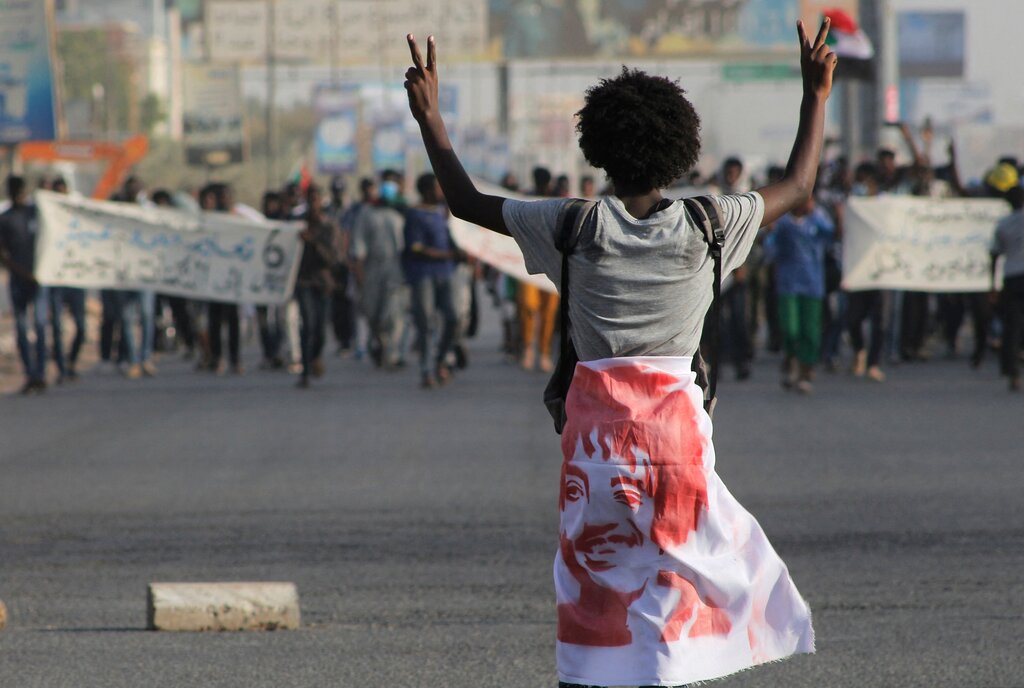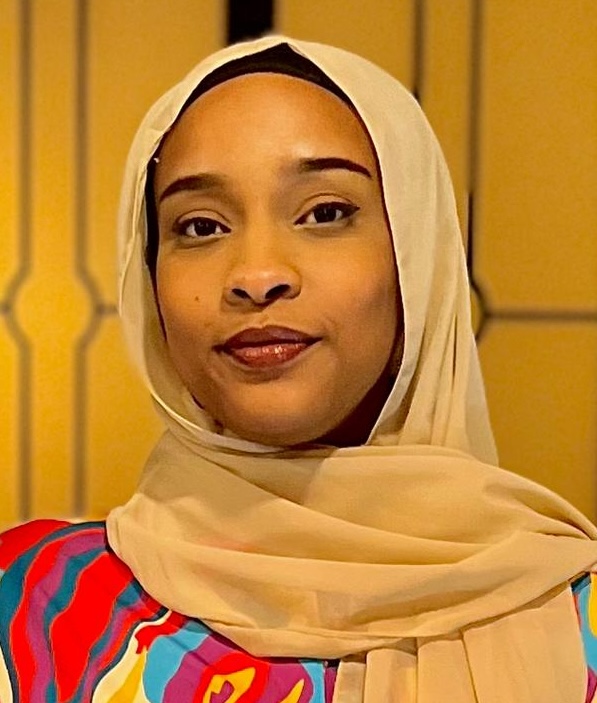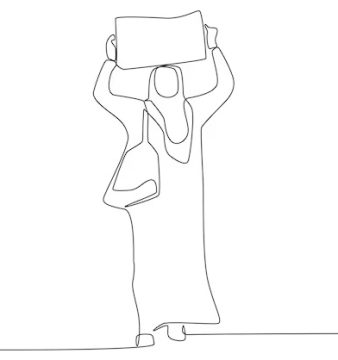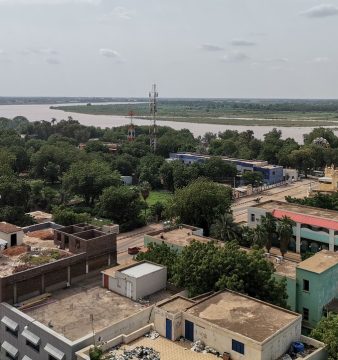Commemorating the December Revolution: The Sixth Anniversary
December has dawned on us, filling millions of Sudanese around the world with nostalgia and longing for Sudan. This time of year never fails to ignite the sense of patriotism and unity within the Sudanese people. Sudan is currently facing a large obstacle in its race for democracy as war continues between the Sudanese Armed Forces (SAF) and the paramilitary Rapid Support Forces (RSF), and yet, despite the ongoing political turmoil, hope continues to burn bright within its people.
The history of Sudan has a rich legacy of political uprisings. The revolutionary spirit has been embedded in the Sudanese people since its independence from British rule in 1956, to the October Revolution in 1964, the April Revolution in 1985, and more recently, the Sudanese Revolution, also known as the December Revolution, that took place in 2018-19.
The December Revolution marked one of the most important phases in Sudan’s political timeline. The first spark of this civil uprising was in the city of Atbara on 19 December 2018. From there, it spread like wildfire through the rest of Sudan. Decades of dictatorship, oppressive military rule, and economic decline under the 30-year-long rule of former Sudanese President Omar Al Bashir drove crowds out to the street in peaceful protest.
In the early 2010s, under Al Bashir’s rule, the people of Sudan took to the streets countless times in protest of the brutal military rule, but none of these uprisings persisted like the December Revolution. In 2018, December brought with it resilience, courage and hope. Civilians marched the streets every day for days which later turned into months, and for the first time since 1989, the finish line was visible in the horizon.
Peaceful protests persisted through early 2019, and not a day went by without a scheduled march, strike, or sit-in. April approached, bringing with it the 30-year mark of Al-Bashir’s rule. On 6 April 2019, protestors from all over Khartoum and surrounding cities headed to the headquarters of SAF, where the world-renowned month-long sit-in took place, bringing around a million people together.
Over 250 lives were lost during the December revolution, and the finish line was starting to feel further away in the months leading up to April. However, the start of the sit-in reignited hope within the Sudanese people and sparked a much-needed and long-awaited sense of unity and patriotism. The crowds grew bigger, the sit-in persisted, and it seemed that the finish line was closer than ever, and it was. On 11 April 2019, the revolution successfully ended the dictatorship of Al Bashir.
In the days after the fall of Al Bashir, the political state of Sudan was in persistent turmoil. When Sudanese Army General Abdel Fattah Al Burhan took charge on 12 April 2019 against the will of the people, it seemed like nothing had changed under the surface. With time, however, the military took initiative in negotiating with civilian leaders to form a transitional government comprising both military and civilian members chosen by the people, and it seemed for a short moment that the democratic era the people of Sudan had hoped for was finally coming to light.
While negotiations took place, the sit-in continued even through the long, tiring days of Ramadan. The end of the holy month however, brought with it the massacre of 3 June 2019, which is when the sit-in was violently dispersed by the SAF and the RSF, the two warring parties fighting against each other in Sudan’s current, ongoing war. What became known as the Khartoum Massacre was a tragic day for the people of Khartoum, marked by an extensive violation of human rights, women rights and the loss of over 120 innocent lives.
Still, hope persisted through heartbreak in the days after the massacre. The focus of the world shifted to Sudan, and all eyes were on the country’s struggling path to democracy. The hashtag #BlueForSudan took social media platforms by storm, with major political and entertainment figures supporting the cause. Demonstrations of solidarity also took place in many major cities around the globe, including London and Washington DC, pressuring the military to cooperate with civilians and ensure a smooth transition to civilian rule.
It was clear that a democratic Sudan was a dream civilians were refusing to let go of. Realising at that moment the strength of their peaceful protests, Sudanese people took to the streets every time their dream of democracy was threatened. In the weeks leading up to the agreement between military and civilian members, many marches were organised, reinforcing the people’s will of having a civilian government.
Persistence and hope continued to fuel the people of Sudan as they awaited a smooth transition to civilian rule. On 17 August 2019, an agreement was signed between the leaders of the civilian and military parties, signifying that within two years, the military leaders will hand over the power to the civilians.
As the time for transition inched closer, hope burned brighter than ever. At that phase, it was clear that civilian leaders, namely Prime Minister Abdalla Hamdok, had a lot to offer the people of Sudan. Many changes were enforced under his rule, the most important of which was clearing the country’s debts.
Political turmoil struck once again, as the time for transition of rule was closer than ever. On 25 October 2021, the infamous military coup staged by Al Burhan took place. Prime Minister Hamdok was placed under home arrest, innocent civilians were killed, and the leaders of the SAF were adamant as ever to stay in power by any means necessary.
This political instability continued on for over a year until 15 April 2023, when war sparked between the SAF and the RSF. This ongoing war constitutes the biggest political hurdle the country has ever faced.
To this day, over tens of thousands of lives were lost in this power struggle. Every day in Sudan, the rights of women are being violated, innocent souls are being killed, and millions of people displaced. With over 60,000 deaths and more than 8 million people displaced, the war in Sudan represents one of the biggest humanitarian crises in the modern world.
Moving forward, a ceasefire is required to halt hostilities between both armed forces involved. Both forces need to be held accountable for the countless humanitarian crimes that were committed since the start of the war. Many changes need to be implemented to ensure the establishment of democracy in Sudan. These include a modernised reform of the SAF, a reconciliation between the military and civilian parties, a smooth transition to civilian rule, and an immense support from the international community.
These changes will not happen overnight, and the people of Sudan remain optimistic that a better Sudan is in the cards. As the nostalgia of December engulfs us, we must remind ourselves to stay resilient, let the fire of hope continue to burn bright, and keep fighting for an era of democracy that Sudan truly needs.
Samar Bengawi is a medical student by day, and a literature and music enthusiast by night. She was born and raised in the UAE and is now based in Georgia. She is never without a cup of coffee in hand, and is always “on the go,” chasing after one hobby or another. Passion in Sudanese politics runs in her blood and she considers herself a patriot who hopes to leave a memorable mark in the world.






